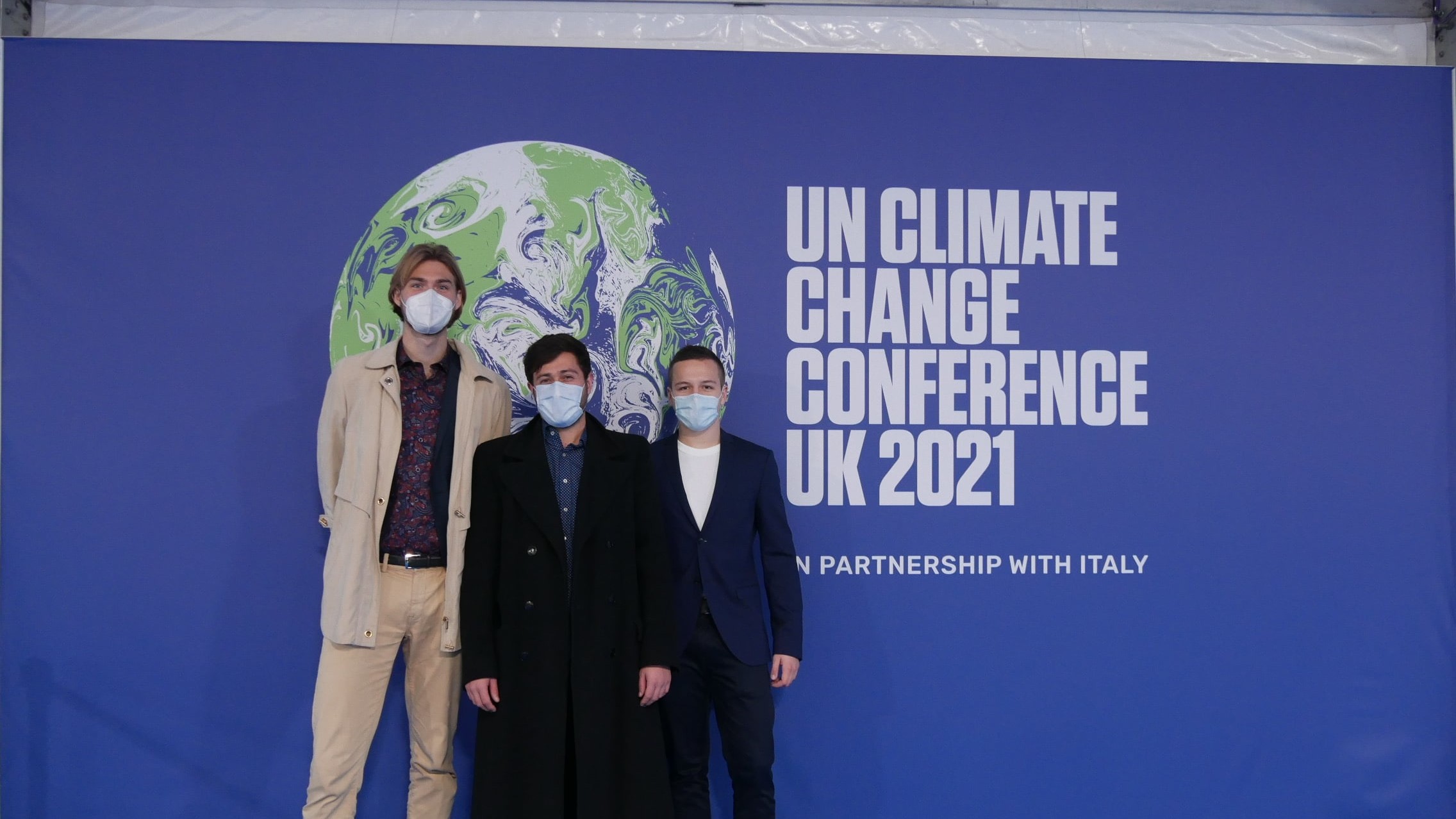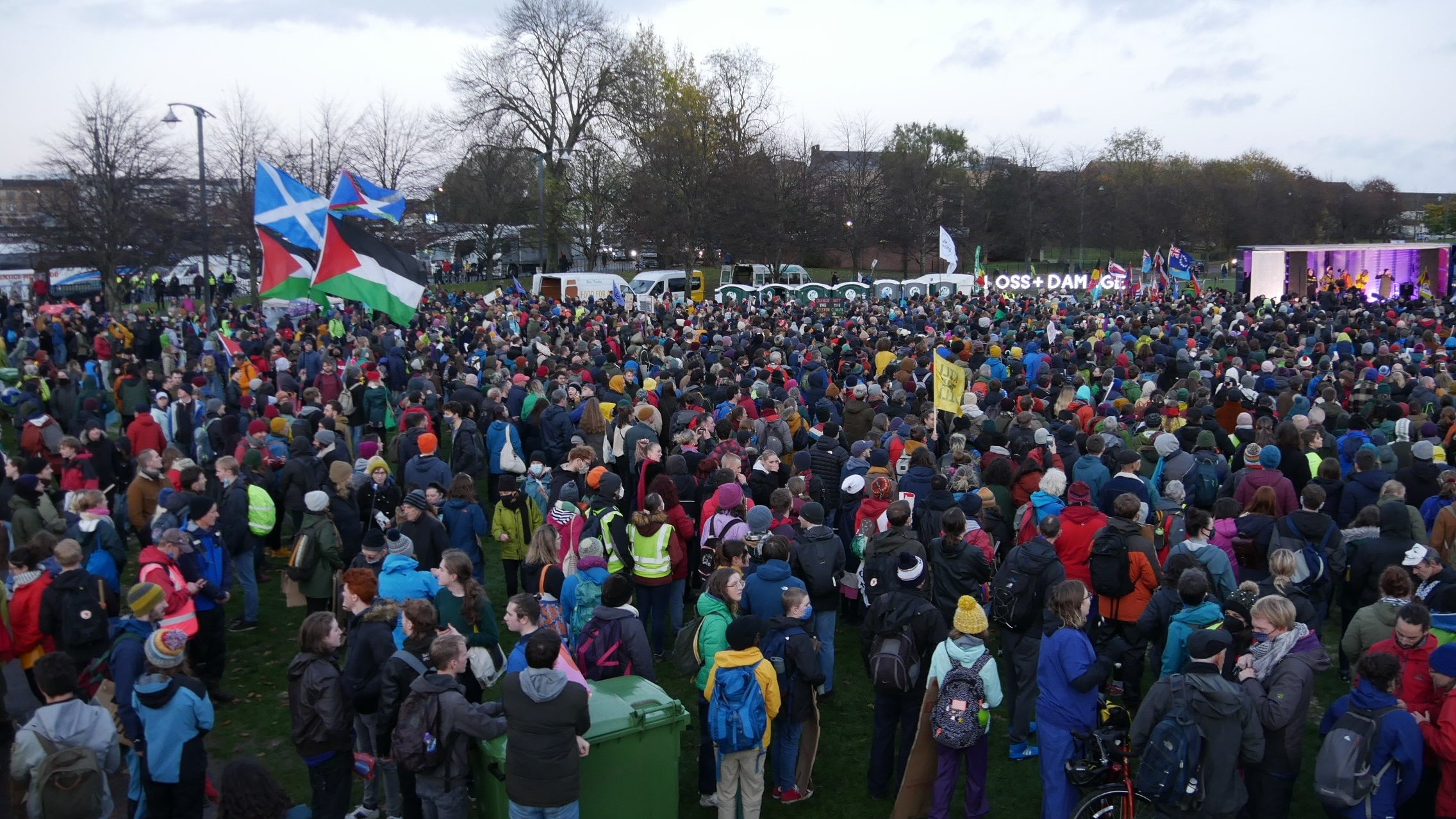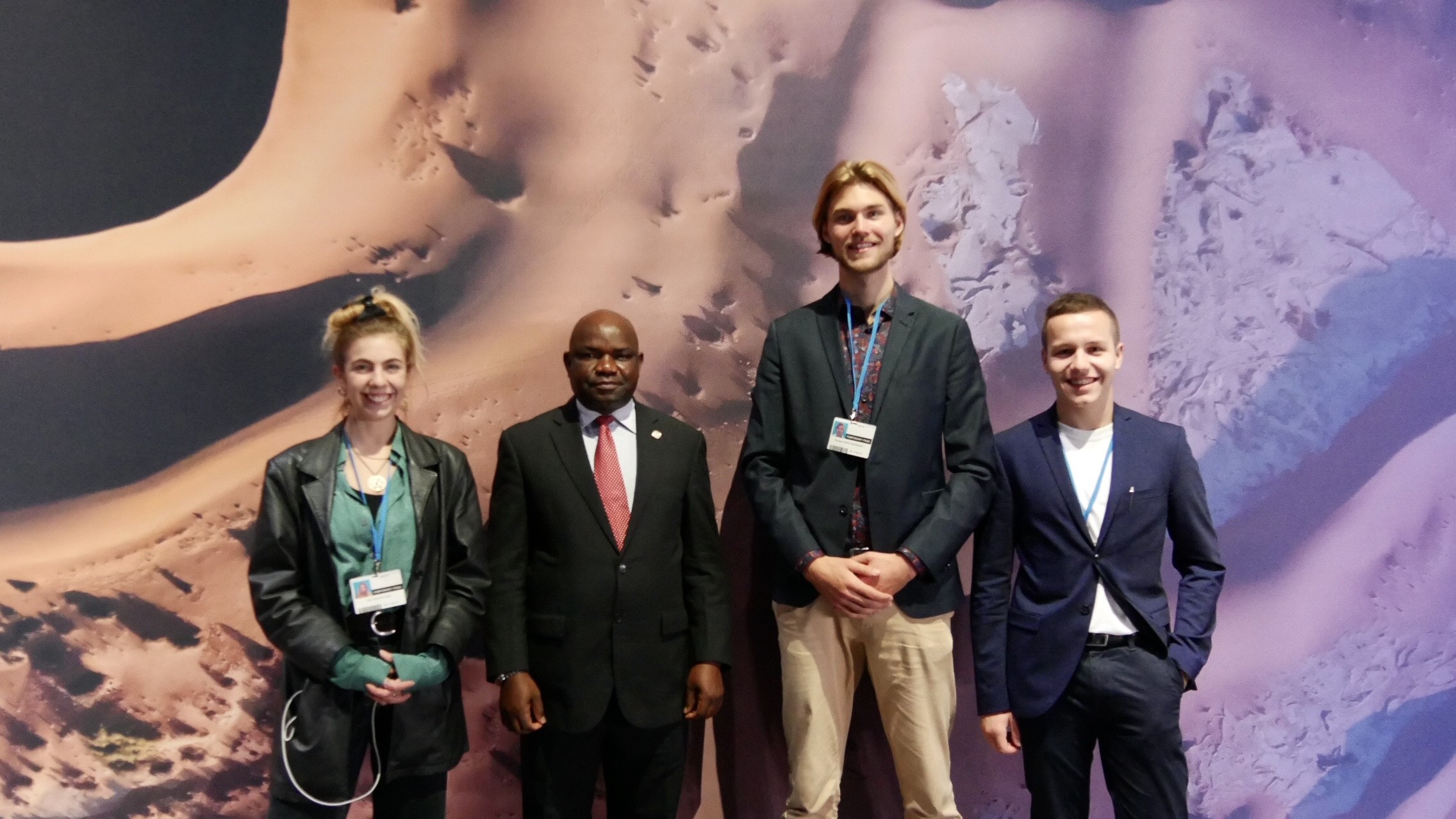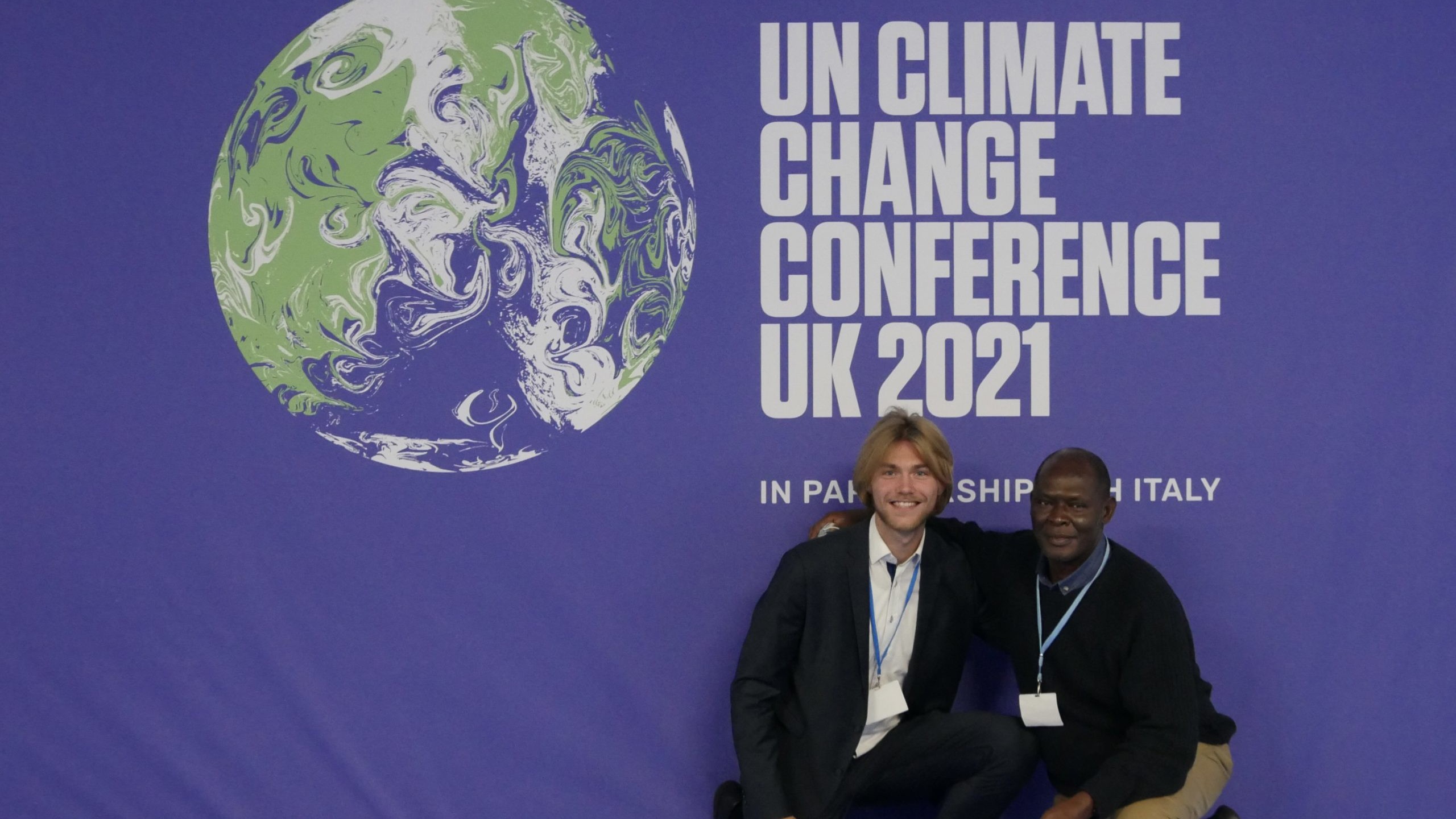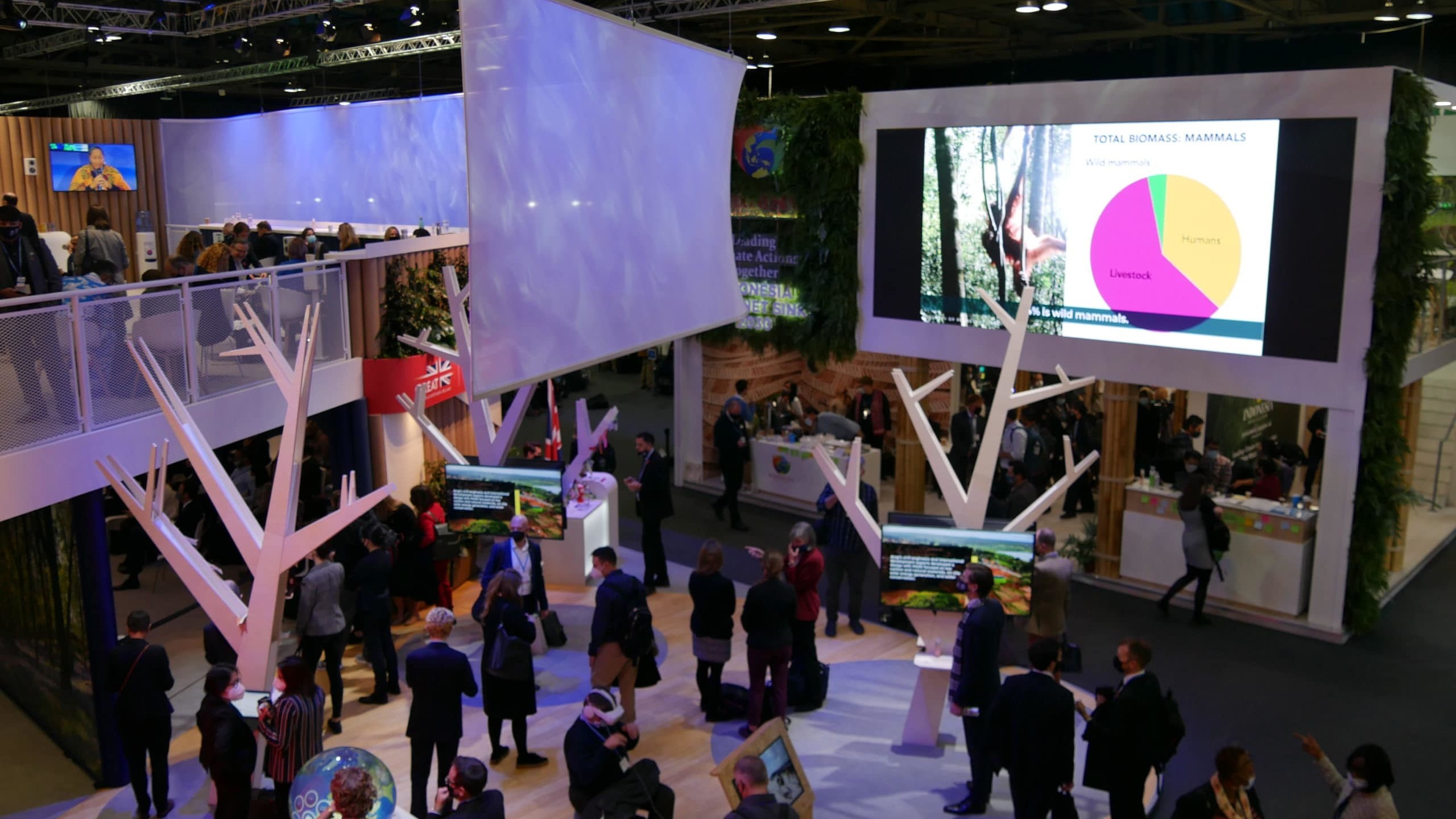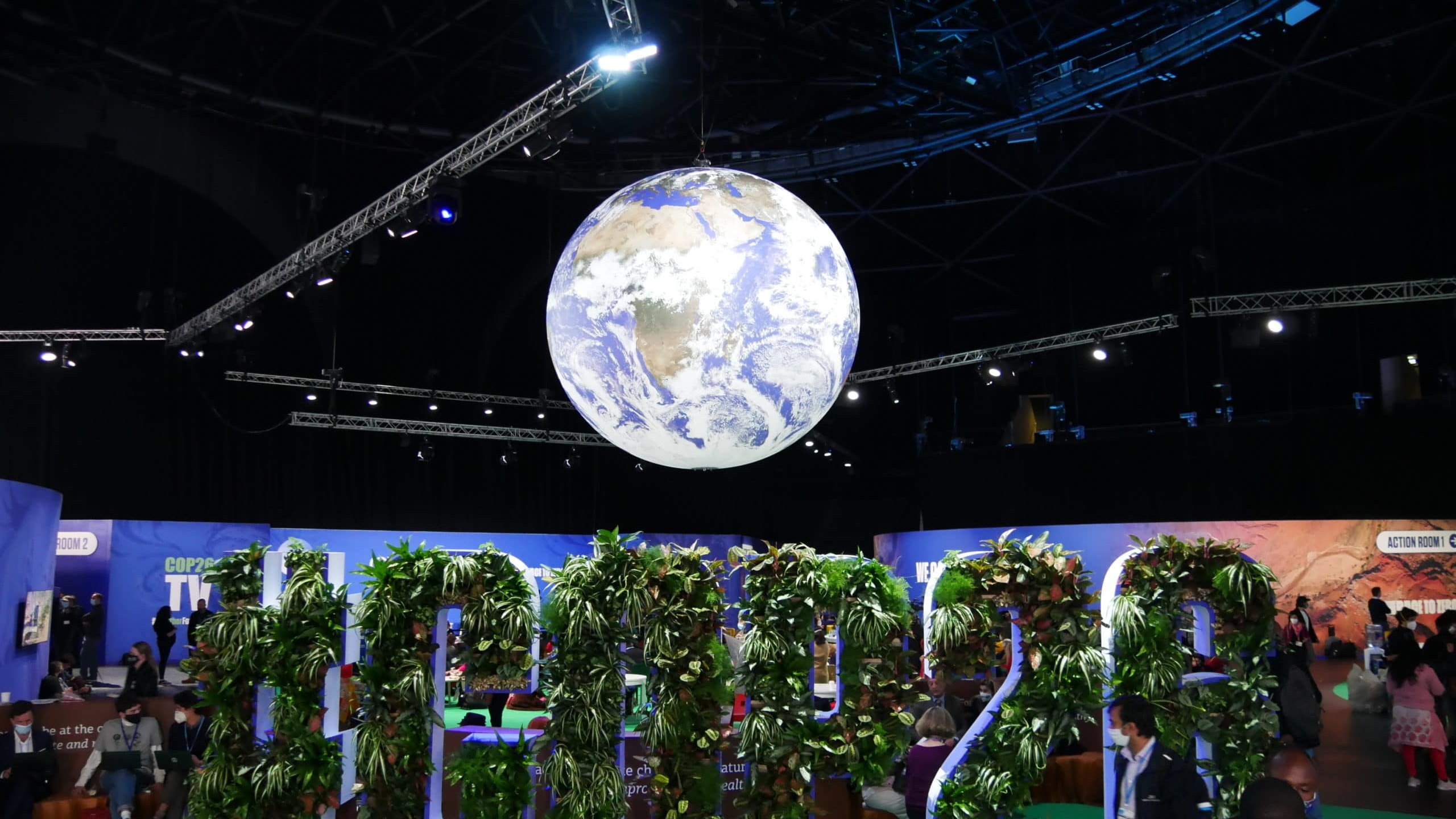
Patience Naamara, our Ugandan Country Director, attended the UN Climate Change Conference (COP26) as a member of the Ugandan delegation! She has been a delegate at several COPs in the past, this time she was a part of the climate change mitigation committee and negotiated specifically in the field of forestry for two full weeks. She also met numerous times with a small team from Fairventures who were also on site to share insights and ideas (More on this team’s experiences later in this article).
For Patience (right), the event has been valuable in three ways: Firstly, she appreciates and supports the view that climate finance must reach the most vulnerable communities to unleash its full potential, a view that has never been as widely-spread as now, due to COP26. Secondly, Patience is welcoming of the events of the 2nd of November, when more than 100 world leaders signed a deal to end and reverse deforestation by 2030. And finally, she is looking forward to applying the insights gained at COP to her work at our Country Office in Uganda. There, she will further promote reforestation in agroforestry settings and the resilience-building within local communities.
We are extremely grateful for all your help during this very eventful week. Thank you, Patience!
What was COP26?
The COP26 was the 26th annual United Nations Climate Change Conference and also the largest COP in history with almost 40,000 official attendees as well as approximately 100,000 activists, participants of side events and visitors. The event had the attention and expectations of the world resting on its shoulders: “Keeping 1.5°C Alive” – The goal to stop global warming at a maximum of 1.5 degrees above pre-industrial levels. To reach this and other goals, politicians, activists and businesses from all over the world came together to make their contribution – and we were part of that!
Schedule & Activities
As we were granted access to the so-called ‘Blue Zone’ – the official area of COP26, restricted to delegates, media and officially accredited representatives of businesses – for three whole days, we focused our energy on networking with innovators in the field. However, we also took part in various side events, such as the demonstrations during the Global Climate Action Day with around 100,000 participants. The event showed the world that climate change isn’t a niche topic anymore. Rather, it is the most important issue to tackle, especially for the younger generations.
By attending an event on Climate Finance at the University of Glasgow, hosted by the Global Landscape Forum, we were able to gain a lot of valuable information, which would later be confirmed at the Blue Zone. The essence was: Nature-based Solutions require effective and accessible financing solutions in order to scale. Particularly, the funding from public institutions as well as the private sector need to reach the most vulnerable communities such as small-holder farmers directly in order to maximize its impact.
Then followed the three days at the Blue Zone, which were intense and packed with exciting activities. The three major events were the following:
On day 1, we were able to set up an interview with Honorable Lawrence Songa, Chairperson of the Standing Committee on Climate Change in the Ugandan parliament – a member of the Ugandan delegation at COP26. With him, we discussed the necessity of funding for the developing countries in order to mitigate but also adapt to the effects of climate change. Additionally, we introduced him to our tree-measuring technology, TREEO.
On day 2, our team attended a panel discussion at the Turkish pavilion on Article 6, the legislation regulating the international carbon market. This, in general, was a central topic at COP26, inside as well as outside the negotiations. The fight against climate change has to be made profitable in order to be interesting for the private sector to reach a relevant scale.
On our final day, we had a meeting with another Ugandan delegate: Fred Onduri, lead negotiator of technology for Uganda. He spoke about the developing countries’ demand to establish a fund for adaptation technologies.
The argument runs that the developing world is hit the hardest by the effects of climate change. Without a robust level of technology (e.g. renewable energy, public infrastructure), communities cannot adapt to the detrimental consequences. Therefore, developing countries must be enabled to strengthen their own industry and become independent developers of their own adaptation technologies. However, Fred was not confident that the fund would be established, pointing to the power asymmetry within the negotiations between the global North and the global South.
Impressions
Aside from those already mentioned, what were our main takeaways from the week? Firstly, we learned that the multi-layered structure of negotiations and therefore the decision-making is painfully slow; every single word in the final declaration has to be agreed on by every single nation. For many industrial and powerful countries, consequences of climate change are not as imminent as the consequences of more substantial policies would be. This leads to events like that on Saturday the 13th, when India and China chose to change the statement on coal and none of the other countries were able to do something, as that would have made their work of the last two weeks insignificant. That observation led us to the following conclusion: In order to tackle climate change globally, successfully and effectively, the private sector has to get involved. And for that to happen, climate protection has to be made profitable.
Moving on, we also managed to network and form valuable business relationships, useful for finance, cooperation and information. From several conversations and panel discussions we received confirmation that our approach to reforestation is exactly what is thought to be the future of environmental efforts: The conservation of existing ecosystems, the removal of large amounts of CO2 from the atmosphere and the empowerment and resilience-building of so-called ‘vulnerable communities’ were the keywords that all investors, indigenous representatives as well as delegates were looking for. Especially the concept of agroforestry, providing food security and income for smallholders, was considered valuable for local resilience-building.
Our tree monitoring technology TREEO was particularly well received. It was emphasized throughout the conference that accurate and reliable monitoring technologies are essential for generating carbon removals in a robust and transparent manner. Solutions like TREEO generate climate intelligence. They are extremely valuable to measure and commercialize high-quality carbon removal projects. Also, nature-based solutions like afforestation are strongly preferred over technological solutions such as carbon capture & storage systems because of the numerous co-benefits, such as the social impact in rural areas and the conservation of ecosystems.
In conclusion, our trip to Glasgow was an absolute success! We represented the Fairventures family in a professional environment, gained valuable contacts and excellent sources of information. We are eager to embed the outcomes in our own work and are extremely humbled to be part of such a vibrant community of climate protection practitioners.
Let’s stay on track!

